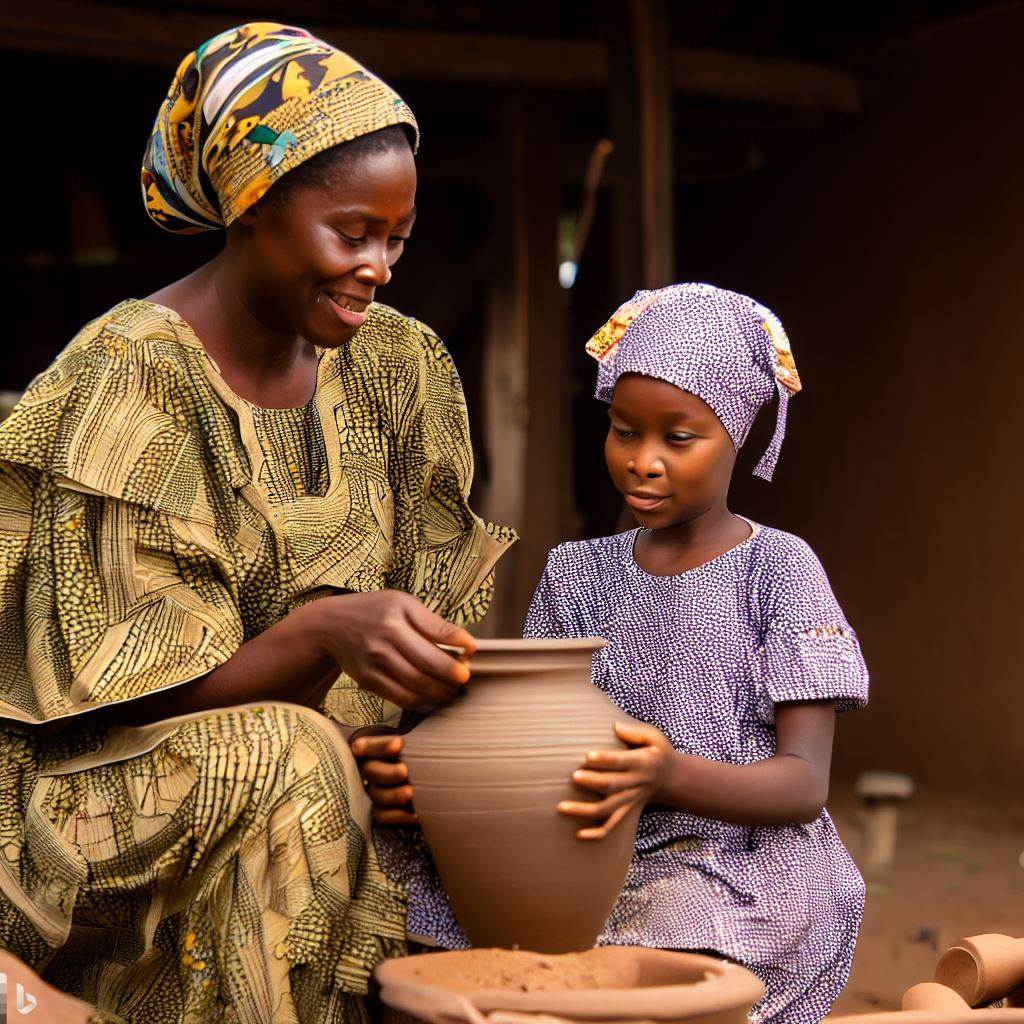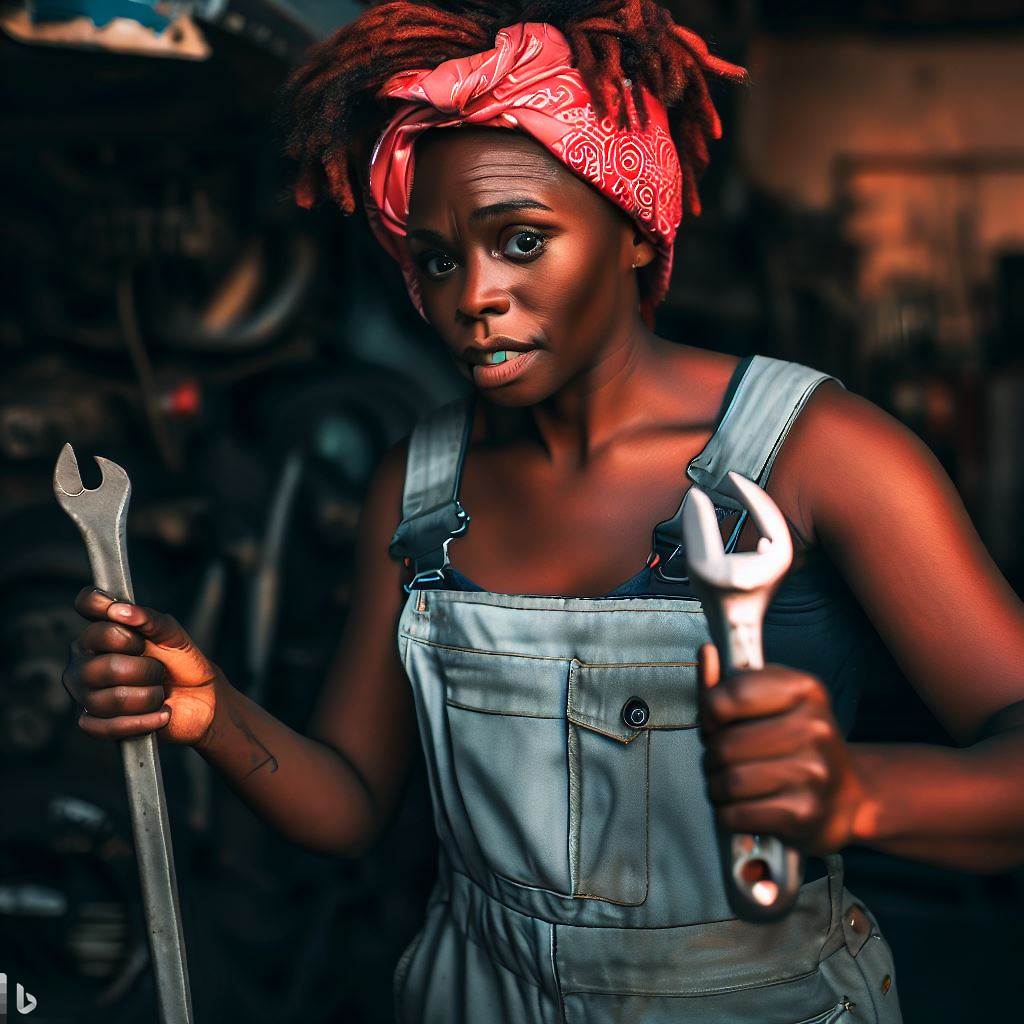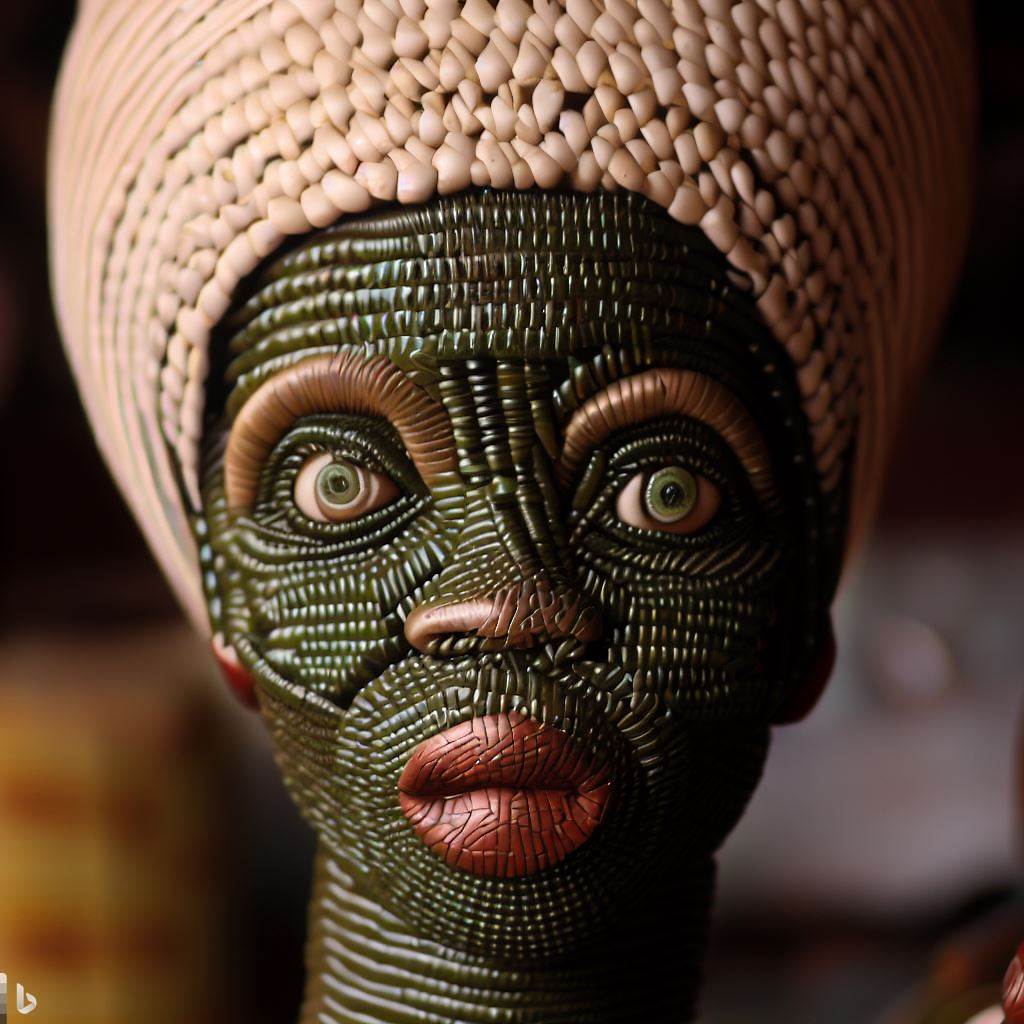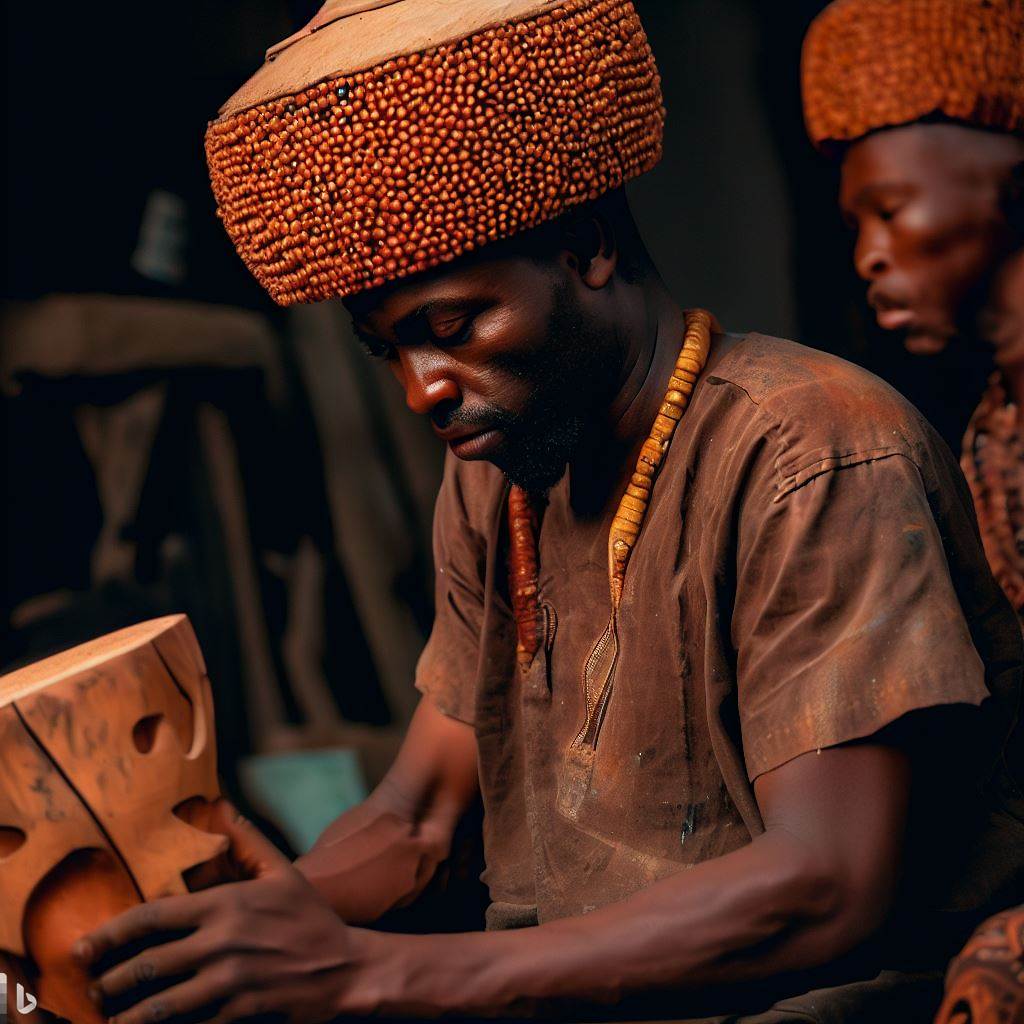Introduction
Traditional crafts in Nigeria have a rich history dating back centuries. These crafts encompass a range of art forms including weaving, pottery, carving, and textiles, to name a few.
They are an essential part of Nigerian culture and continue to play a crucial role in daily life.
However, the advent of modern technology has had a significant impact on traditional crafts in Nigeria.
Modern technology refers to the use of machines, automation, and computer systems to enhance production.
While it has brought about progress and advancement in some areas, traditional crafts have suffered as a result.
Read: Mastering Trade Skills: A Path to Employment in Nigeria
Overview of Modern Technology in Nigeria
Modern technology has revolutionized the way we live, work and interact with each other. Nigeria, like many other African countries, has witnessed remarkable advancements in technology in recent decades.
In this section, we will discuss the impact of modern technology on traditional crafts in Nigeria.
Overview of Modern Technology in Nigeria
- Mobile technology has been the biggest contributor to the growth of modern technology in Nigeria.
- Nigeria is now the largest mobile market in Africa with over 140 million active mobile subscribers.
- The government has also invested heavily in improving internet connectivity in the country.
- The growth of e-commerce platforms has enabled Nigerians to purchase goods and services online with ease.
- Nigeria has also seen significant improvements in the healthcare sector with the introduction of telemedicine.
Advancements in Technology in Nigeria
- Artificial Intelligence: Nigeria has seen rapid growth in the use of Artificial Intelligence in various industries, including finance, healthcare, and agriculture.
- Blockchain Technology: Nigeria has become a hotspot for blockchain technology adoption with many startups exploring the potential of the technology to solve some of the country’s critical issues like corruption and financial inclusion.
- 3D Printing: The use of 3D printing has revolutionized the manufacturing industry in Nigeria, especially in the production of spare parts for machines and cars.
- Smart Agriculture: Modern technology has played a crucial role in modernizing agriculture in Nigeria, with farmers using sensors, drones, and weather forecasting tools to improve yields.
How Modern Technology Has Changed Different Industries in Nigeria
- Music and Entertainment: The rise of digital music platforms like Spotify, Tidal, and Apple Music has made it easier for Nigerian artists to reach a global audience.
- Manufacturing: The use of automation in manufacturing has reduced the time and cost of production while also improving quality and efficiency.
- Education: Modern technology has changed the way Nigerians access education with the introduction of e-learning platforms, online courses and webinars.
- Fashion Industry: The use of technology in fashion has allowed Nigerian designers to showcase their works online and reach a wider audience.
- Tourism: Modern technology has enabled Nigerians to book travel tickets, accommodation and plan their holiday from the comfort of their homes.
- Transportation: The introduction of ride-hailing services like Uber and Bolt has made transportation in Nigeria easier, safer and affordable.
Read: Craftsmanship as a Sustainable Livelihood in Nigeria
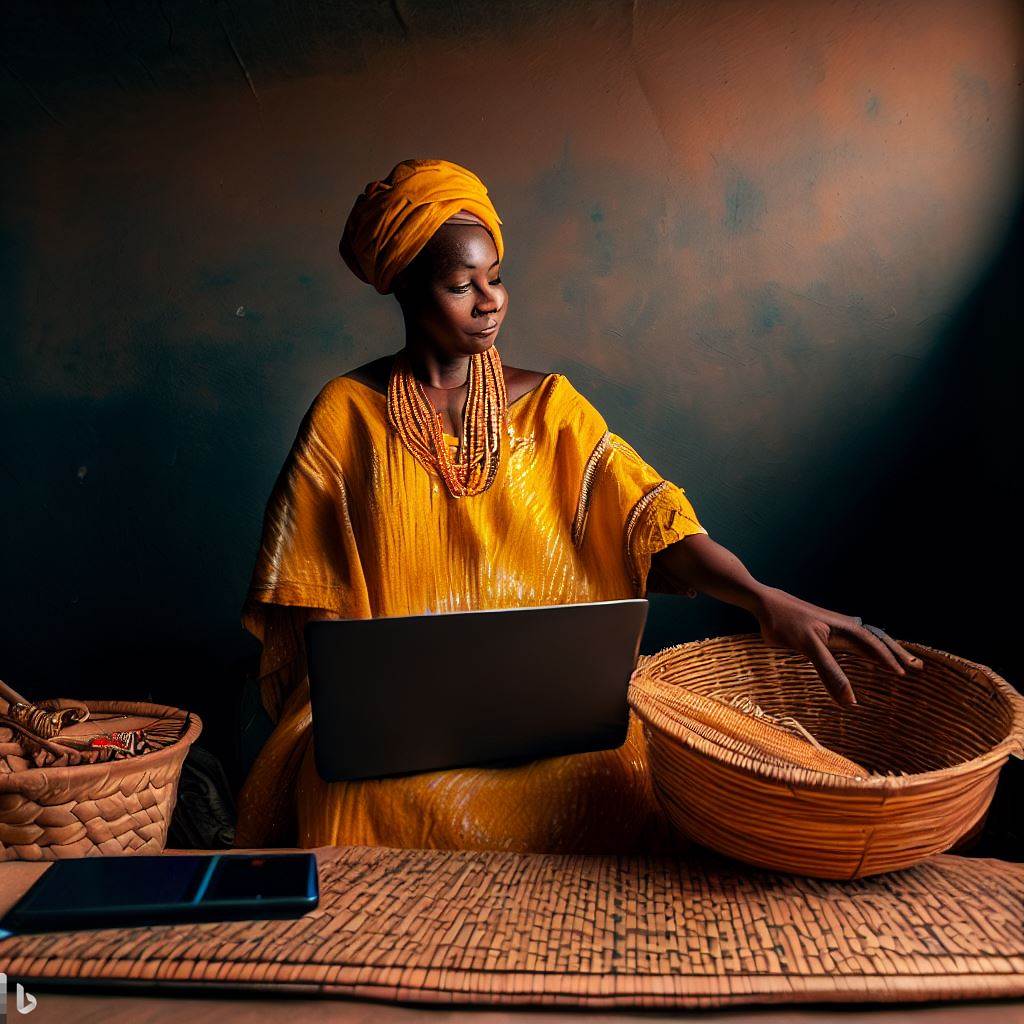
Impact of Modern Technology on Traditional Crafts in Nigeria
Despite the numerous benefits of modern technology in Nigeria, many traditional crafts have been negatively impacted.
The influx of foreign products and the adoption of modern technology have made traditional crafts less popular, resulting in a decline in the number of skilled artisans and craftsmen.
Many traditional crafts are now facing extinction, with young people showing little interest in taking up traditional crafts as a profession.
The impact of modern technology on traditional crafts in Nigeria can be seen in the following areas:
- Production: Modern technology has resulted in mass production, which has made traditional crafts less valuable and less profitable.
- Distribution: The rise of e-commerce platforms has made it easier for consumers to purchase foreign-made products, leaving little demand for traditional crafts.
- Marketing: The use of social media and digital marketing has made it easier for foreign-made products to reach a wider audience, leaving traditional crafts to struggle for visibility.
- Innovation: Lack of innovation and modernization in traditional crafts has made them less appealing to younger consumers who prefer modern, trendy products.
The impact of modern technology on traditional crafts in Nigeria cannot be overstated.
While modern technology has created numerous opportunities in various sectors of the economy, traditional crafts have been left behind.
Therefore, there is an urgent need for policies and programs aimed at preserving and promoting traditional crafts in Nigeria.
The government and other stakeholders must come together to ensure that traditional crafts are protected and that young people are encouraged to take up traditional crafts as a profession.
Modern technology has brought about a significant impact on traditional crafts in Nigeria.
This impact can be seen in various ways:
Decrease in Quality and Authenticity of Traditional Crafts
- With the introduction of modern technology, traditional crafts are no longer made with the same level of detail and precision as before.
- Many traditional craftsmen have chosen to cut corners and opt for cheaper and easier methods of production.
- This has resulted in a decline in quality and authenticity of traditional crafts.
Introduction of Mass Production and Machine-made Products
- Modern technology has led to the introduction of mass production and machine-made products that are cheaper and more efficient than traditional crafts.
- This has made it difficult for traditional craftsmen to compete in the market and has resulted in declining demand for their products.
- Many traditional craftsmen have been forced to switch to other professions, leading to a decline in traditional crafts skills and knowledge.
Changes in Techniques and Materials Used in Traditional Crafts
- Modern technology has brought about changes in the techniques and materials used in traditional crafts.
- Traditional methods are no longer as effective or efficient as modern methods, and many craftsmen have had to adapt to keep up with the times.
- While some traditional craftsmen have embraced modern techniques and materials, others have stuck to their traditional ways, resulting in a divide within the traditional crafts community.
Effect on the Economy of Traditional Craft Makers
- Traditional craftsmen have been adversely affected by the impact of modern technology on traditional crafts.
- Many traditional craftsmen have lost their livelihoods due to the decline in demand for their products.
- This has had a significant impact on the economy of traditional craft makers and their communities.
In essence, the impact of modern technology on traditional crafts in Nigeria has been significant.
Modern technology’s advantages have caused a decline in traditional crafts’ quality and authenticity.
Mass production and machine-made products were introduced, altering techniques and materials, negatively affecting traditional craft makers’ economy.
Read: Nigerian Women in Trade Skills: Breaking Barriers
Resistance to the Impact of Modern Technology on Traditional Crafts
The introduction of modern technology has had a significant impact on traditional crafts in Nigeria. However, some Nigerians are resistant to this change and are making efforts to preserve their traditional crafts.
Preservation efforts and initiatives to maintain traditional crafts
- Nigerian artisans have formed associations and cooperatives to preserve their craft and pass it down to future generations.
- The National Council for Arts and Culture has organized training programs for the preservation of traditional crafts.
- The Nigerian government has introduced policies that protect and promote the preservation of traditional crafts.
- Some Non-Governmental Organizations (NGOs) have taken up the mandate to preserve traditional crafts in Nigeria.
Importance of preserving traditional crafts to Nigerian culture
- Preserving traditional crafts is essential to maintaining Nigerian culture and heritage.
- Traditional crafts tell the story of Nigerian history, culture, and identity.
- Preserving traditional crafts helps Nigerian people connect with their roots and promote cultural diversity.
- Traditional crafts help to promote tourism, which is a crucial part of the Nigerian economy.
Benefits of supporting traditional crafts
- Supporting traditional crafts helps to create employment opportunities for Nigerian artisans and craftsmen.
- It promotes the use of local materials, which contributes to sustainable development and reduces the country’s dependence on foreign imports.
- Preserving and supporting traditional crafts helps to generate income for local communities and contributes to poverty reduction.
- It also helps to preserve the environment by promoting the use of natural materials and reducing waste.
In summary, modern technology significantly impacts Nigerian traditional crafts. Yet, preserving and supporting them remains crucial for Nigerian culture and heritage.
Nigerians must resist technology’s negative impact and promote and preserve crafts for future generations.
Read: Craftsmanship: The Backbone of Nigeria’s Cultural Heritage
Conclusion
Overall, the impact of modern technology on traditional crafts in Nigeria cannot be ignored.
These traditional crafts, such as weaving, pottery, and woodcarving, have seen a decline due to the prevalence of modern technologies and practices.
To preserve and grow Nigeria’s craft industry, a balance of modern technology and traditional crafts is essential.
The government and individuals must invest in promoting and developing traditional crafts.
Provide training, resources, and opportunities for local artisans to showcase their work globally.
These efforts preserve Nigeria’s cultural heritage and harness modern technologies and practices for benefits.

